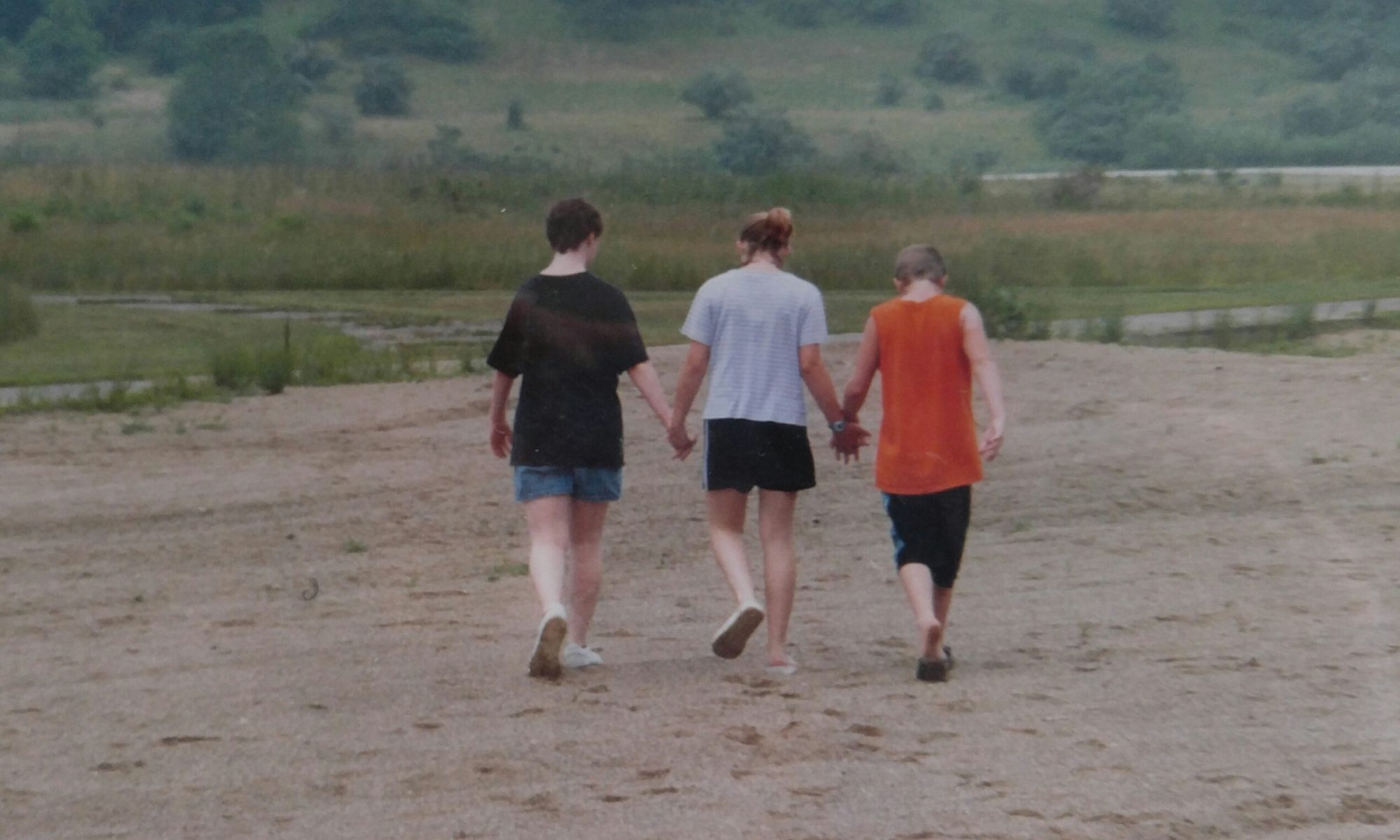Today, hearing a parent wonder if they caused their child’s autism would shock most people. Today, it is known that autism is a neurological disorder. Today, autism is well-known, even if it is still not always understood. But, when Casey was diagnosed, it was a different world. It wasn’t something very many people knew anything about, unless they had watched the movie “Rainman”. And, even then, many people wondered how many liberties had been taken to make a better movie.
I’ve mentioned before that the first book I was told to read when the doctor gave me her diagnosis scared the hell out of me. As I read it, I highlighted parts to come back to – I was ready for research to help my little girl. There was no internet. I had books at the library. A local bookstore was managed by a good friend of mine’s mom and she ordered the book for me. Since I was told it was the best available, I wanted my own copy. I still have that terrifying book on my shelf of the autism books that I have really enjoyed over the years. It is a reminder to never, ever believe what other’s say about your child.
But, I wanted to read more and looked for books at the library. Imagine my surprise and shocked when the next several I read said that autism was caused by “refrigerator” moms. Basically, autism was caused by moms who didn’t connect with their child and the child felt they weren’t loved, so they pulled back into themselves.
Okay. So – I knew it couldn’t be true. In my mind, I did. I knew that I spent every day with Casey. I didn’t have to work, so it was Casey, me and Molly, our black lab together every day. We went everywhere together. I talked to her all day. I read books to her when she was too small to even hold her head up. I played peek a boo and we cuddled often.
But…. what about when I put her in a playpen so I could take a shower? She was in the living room, not in the bathroom with me. Maybe she thought I just left her to do something more fun? Sometimes, I let her sleep in the playpen for her afternoon nap instead of putting her in her bed. What if she only went to sleep because she was bored and lonely? What if she felt abandoned when she stayed with my parents? What if, even as I talked to her, I wasn’t really connecting to her? What if I really did cause her to withdraw from me?
Today, this all sounds completely unreasonable. But, at the time, I was a young, first time mom. No one I knew had a child with autism. Doctors had little experience with it. My friends thought maybe she was sick when I told them. And the books – they said I caused it. I grew up loving books – I read about anything I could get my hands on. What I read in reference books was the truth. And, according to the books, I was the cause. I didn’t love my little girl enough for her to want to talk to me or anyone else.
These were secrets thoughts. I didn’t talk to anyone about it – what if they agreed with the books and autism was my fault? No, it was bad enough to know it myself. I didn’t want anyone else to think the same. It was too terrible to think about.
Finally, I found new books. New research showed that it wasn’t bad mothers, but differences in the brain that caused it. Even after I read that in the first book, I wasn’t sure. If all the books I read were wrong, how could I be sure this one was right? Then I read more and finally, let the guilt go. I didn’t force Casey to withdraw from me. She knew I loved her, even if she couldn’t say it back.
I let go of even more of these crazy thoughts when Mandy never showed signs of autism. If it was me, she would have had autism, too. By the time Rob was diagnosed, I had read so much and talked to so many people that I knew it wasn’t me. It’s funny – way back then, I did hear a mom mentioned that she thought autism might have been her fault and I didn’t know what to say to her. Today, no one even thinks such a crazy thing. And that’s amazing! Finally, people are looking for ways to help, not someone to blame.
I’m sure someone could still stumble onto those old books somewhere. Thankfully, with the availability of the internet and thousands of other books, no parents will wonder if they caused their child’s autism again. It’s a thing of the past. Autism is difficult to understand and I don’t think they will ever find out the true cause. Personally, I think there are many factors – why else would this be such a spectrum disorder? I see many older adults that probably have autism on some level. Had they been children, now, they would receive a diagnosis. But when they were children, only the children with severe autism were diagnosed.
And I know it doesn’t really matter what caused autism in Casey and Rob. They are who they are. They are amazing, strong, kind young adults and isn’t that what we all want our children to grow up to be?
Happy Mother’s Day to all!




